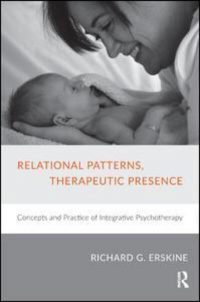This book presents a comprehensive integrative theory and style of therapeutic involvement that reflects a relational and non-pathological perspective. It discusses various psychotherapy theories and methods, and examines the implications and magnitude of an involved therapeutic-relationship.
Table of Contents
Foreword — Preface — Introduction: Philosophical principles of integrative psychotherapy — Integrative psychotherapy: theory, process, and relationship — A therapy of contact-in-relationship — Attunement and involvement: therapeutic responses to relational needs — Psychotherapy of unconscious experience — Life scripts and attachment patterns: theoretical integration and therapeutic involvement — Life scripts: unconscious relational patterns and psychotherapeutic involvement — The script system: an unconscious organization of experience — Psychological functions of life scripts — Integrating expressive methods in a relational psychotherapy — Bonding in relationship: a solution to violence? — A Gestalt therapy approach to shame and self-righteousness: theory and methods — The schizoid process — Early affect-confusion: the “borderline” between despair and rage — Balancing on the “borderline” of early affect-confusion — Relational healing of early affect-confusion — Introjection, psychic presence, and Parent ego states: considerations for psychotherapy — Resolving intrapsychic conflict: psychotherapy of Parent ego states — What do you say before you say goodbye? Psychotherapy of grief — Nonverbal stories: the body in psychotherapy — Narcissism or the therapist’s error?

